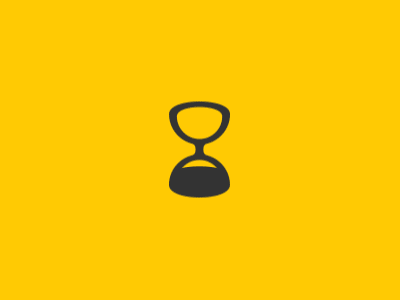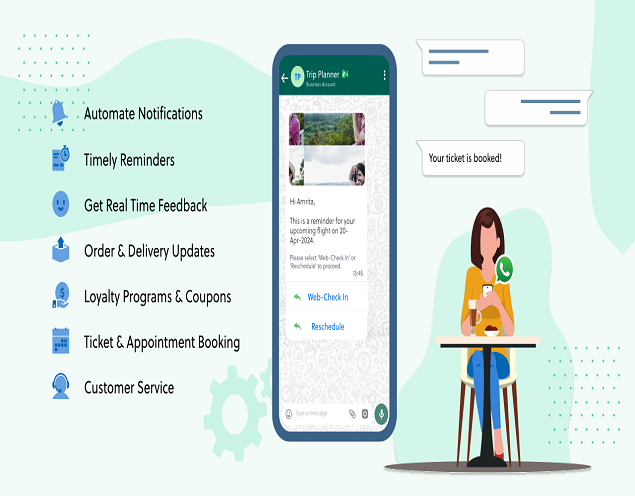info@dominantinfotech.com
+918905687878, +919925036660
WhatsApp has quickly become one of the most important tools for business communication. What started as a personal messaging app is now helping companies across industries connect with their customers more directly and effectively. In 2025, this shift has only grown stronger.
Recent data from Statista shows that WhatsApp now has over 2.7 billion active users each month, and more than 175 million people message a business account daily. This isn’t just a trend—it’s a clear signal that customers prefer fast, simple, and personal communication. At the same time, Meta reports that businesses using the WhatsApp Business API are seeing a 30% higher customer response rate and a 20% improvement in customer loyalty compared to other traditional channels.
These numbers highlight one important fact: WhatsApp is no longer just a chat app—it’s becoming a complete business platform.
To support this growing demand, Meta has released a powerful set of updates in the WhatsApp Business API for 2025. These updates are designed to make customer conversations faster, smarter, and more useful. From AI-driven messaging and real-time payments to better privacy tools and CRM integration, the API is now more capable than ever.
This article will walk you through the key features introduced in WhatsApp Business API 2025, and how they can help your business improve customer service, increase sales, and build lasting relationships.
1. Smarter Conversations with Dynamic Flows
One of the most meaningful upgrades in 2025 is the introduction of dynamic conversation flows. Rather than building long static scripts, businesses can now create flexible response paths. These flows adjust based on user replies, making the experience feel natural and responsive.
For example, a customer asking about order status will automatically be guided to different replies depending on their order history. This change simplifies customer support, reduces handling time, and improves satisfaction.
2. Integrated Payments Now Available in More Regions
WhatsApp has expanded its in-app payment features to more countries, including India, Brazil, and several African and Southeast Asian markets.
Customers can now browse a product, ask questions, and complete their payment—all within WhatsApp. There is no need to switch to an external website. This creates a smooth customer journey and significantly improves purchase conversion.
3. Advanced Template Options for Promotions and Services
WhatsApp has expanded the types of messages companies can send. Businesses now have access to new message formats such as image-based carousels, video previews, and interactive buttons.
These features help businesses share offers, updates, or catalogs in a format that is visually clear and easy to act upon. These templates can also be customized based on user preferences or past behavior.
4. Green Tick Access Made Simple
Until now, getting the verified green tick was a complicated and time-consuming task. With the 2025 update, businesses using verified API providers can initiate the green tick request directly from their dashboard.
This update helps startups and mid-size businesses gain credibility faster and build stronger trust with customers from the first interaction.
5. Faster Performance and Higher Messaging Capacity
WhatsApp has significantly increased the messaging limits in the API. Businesses can now send more messages per second, enabling them to reach a larger audience without delay.
Additionally, message templates now get approved more quickly, and scheduling tools have been improved. This allows brands to plan campaigns efficiently and respond faster during high-traffic periods like festivals or product launches.
6. Compliance and Consent Tools Built-In
Privacy remains a major focus, and WhatsApp has taken additional steps to help businesses meet global standards. The 2025 update includes enhanced opt-in workflows, tailored for compliance with regulations like GDPR and India’s Digital Personal Data Protection Act.
Businesses can now capture consent using QR codes, short links, or phone verification, and manage regional settings within the platform.
7. Higher API Rate Limits and Faster Message Delivery
For businesses handling high-volume communication, WhatsApp Business API 2025 brings faster performance. The updated API can now handle more messages per second, improving delivery during campaigns or promotions.
In addition, approval time for message templates has been reduced, and bulk messaging is now supported with new scheduling and tracking capabilities.
These changes help larger organizations scale their communication efforts without delays.
8. Integration with Meta’s AI Suite
WhatsApp Business API now works more closely with Meta’s AI development tools. Businesses can use these integrations to automate responses, suggest products, or generate personalized replies based on user history.
Instead of setting up every message manually, the system can learn from past interactions to deliver relevant answers—reducing workload for human agents and improving customer satisfaction.
Conclusion
The updates introduced in WhatsApp Business API 2025 are not minor technical changes—they represent a significant evolution in how businesses can use the platform to engage customers. From smarter automation and payments to better privacy and performance, these improvements are aligned with the growing expectations of digital-first consumers.
For companies looking to improve customer service, increase sales, and operate more efficiently, these changes offer a clear advantage. As WhatsApp continues to expand its capabilities, it remains a strong channel for reliable and secure business communication.
Frequently Asked Questions (FAQs)
1. What is WhatsApp Business API used for?
WhatsApp Business API is designed for medium to large businesses to send and receive messages at scale. It helps companies automate customer support, send notifications, run marketing campaigns, and integrate with tools like CRM systems for better communication.
2. What are the key updates in WhatsApp Business API 2025?
The 2025 updates include dynamic conversation flows, in-chat payments in more regions, improved message templates, easier green tick verification, faster message delivery, advanced privacy tools, CRM integrations, and AI-powered replies.
3. How does WhatsApp Business API help increase sales?
It allows businesses to guide users through the buying process in real time—from product discovery to payment—all within WhatsApp. With faster responses, interactive messages, and smart automation, it improves engagement and drives more conversions.
4. Is WhatsApp Business API suitable for small businesses?
While small businesses often start with the free WhatsApp Business app, those handling higher volumes of messages or needing automation and integrations can benefit from switching to the API. It offers more control, customization, and scalability.
5. How can I get started with WhatsApp Business API in 2025?
To start using the API, businesses need to apply through an official WhatsApp Business Solution Provider (BSP). Once approved, they can set up their account, configure message templates, connect to CRM systems, and begin messaging customers.

Your experience on this site will be improved by allowing cookies.
 September 13, 2025 - BY Admin
September 13, 2025 - BY Admin